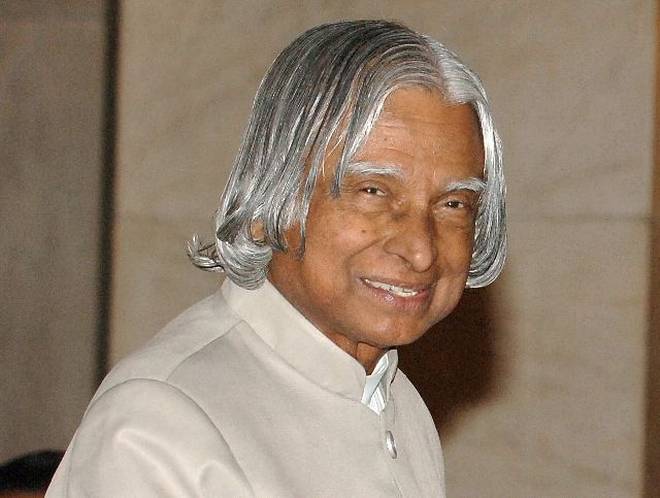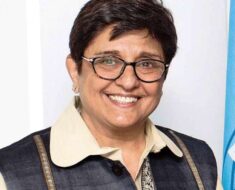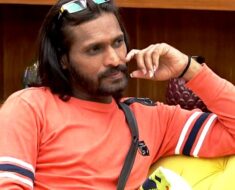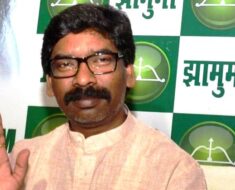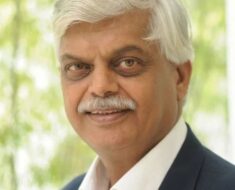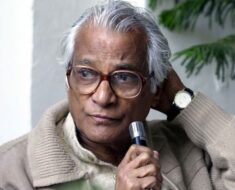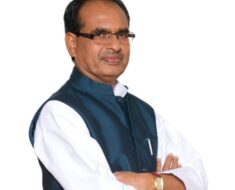Dr. Avul Pakir Jainulabdeen Abdul Kalam: a name synonymous with knowledge, patriotism, inspiration, and statesmanship. Though he’s no longer with us, his legacy continues to motivate millions. His incredible journey, from humble beginnings to the highest office in India, serves as a powerful testament to the human spirit.
Biography/Wiki
Avul Pakir Jainulabdeen Abdul Kalam was born on October 15, 1931, into a modest Muslim family in Rameswaram, Madras Presidency, British India. The youngest of six siblings, his father was a mosque imam and boat owner, ferrying pilgrims. His mother was a homemaker. The family’s traditional trade, transporting goods and pilgrims between Tamil Nadu and Sri Lanka, declined with the construction of the Pamban Bridge in 1914. During his childhood, Kalam contributed to the family’s income by selling newspapers.
Academically, Kalam was initially an average student but possessed a strong curiosity. He developed a keen interest in mathematics and physics. He completed his primary and secondary education at Schwartz Higher Secondary School, Ramanathapuram, Tamil Nadu. He then pursued further education at St. Joseph’s College, Tiruchirappalli, graduating with a Physics degree in 1954. In 1955, he enrolled at the Madras Institute of Technology to study aerospace engineering, showcasing his determination and ambition.
While at MIT, he faced a challenging project deadline, demonstrating his problem-solving skills under pressure. He narrowly missed becoming a fighter pilot, achieving ninth place when only eight positions were available in the Indian Air Force.
Family
Kalam was born to Jainulabiddin Marakayar (Imam) and Ashiamma Jainulabiddin (Housewife). He had three brothers: Kasim Mohammed, Mohammed Muthu Meera Lebbai Maraikayar, Mustafa Kamal, and an elder sister, Asim Zohra. He remained unmarried throughout his life.
Career
After graduating from the Madras Institute of Technology, Kalam joined the Defence Research and Development Organisation (DRDO)’s Aeronautical Development Establishment. He began by designing a small hovercraft. He also contributed to the Indian National Committee for Space Research (INCOSPAR) under Vikram Sarabhai.
His career involved significant international collaborations. Between 1963 and 1964, he visited NASA’s Langley Research Center, Goddard Space Flight Center, and Wallops Flight Facility. In 1969, he joined the Indian Space Research Organisation (ISRO), leading the project for India’s first satellite launch vehicle, SLV III, which successfully deployed the Rohini satellite in 1980.
From the 1970s to the 1990s, he played a pivotal role in the development of the Polar Satellite Launch Vehicle (PSLV) and SLV-III projects. He also directed Project Devil and Project Valiant, focused on ballistic missile development, receiving secret funding from Prime Minister Indira Gandhi.
From July 1992 to December 1999, he served as the Chief Scientific Adviser to the Prime Minister and Secretary of DRDO. He was the Chief Project Coordinator for the Pokhran-II nuclear tests in 1999.
In 2002, he was elected the 11th President of India, a testament to his national standing and respect. After his presidency, he continued to contribute as a visiting professor at several prestigious institutions.
Controversies
Kalam faced criticism for his handling of mercy petitions during his presidency and for his stance on the Koodankulam Nuclear Power Plant.
Awards/Honours/Achievements
Kalam received numerous accolades, including the Padma Bhushan (1981), Padma Vibhushan (1990), and Bharat Ratna (1997). He also received the King Charles II Medal (2007) and the Hoover Medal (2009).
Several institutions and landmarks were renamed in his honour, reflecting the nation’s deep respect for his contributions.
Net Worth
Despite his high profile, Kalam maintained a remarkably simple lifestyle. His possessions were few, highlighting his focus on service rather than material wealth.
Death Cause
Kalam passed away on July 27, 2015, due to a cardiac arrest while delivering a lecture in Shillong. He was given a state funeral, attended by thousands.
Religious and Spiritual Views
While a practicing Muslim, Kalam demonstrated deep respect for all faiths. His spiritual journey included studying both the Quran and the Bhagavad Gita.
Famous Books
Kalam authored several influential books, including “Wings of Fire,” “India 2020,” and “Ignited Minds,” which continue to inspire readers.
Interesting Facts
Kalam’s life was filled with interesting anecdotes, from his childhood love of reading to his unwavering positive attitude and his commitment to public service.
Table of Key Events in Kalam’s Life
| Year | Event |
|---|---|
| 1931 | Born in Rameswaram |
| 1954 | Graduated in Physics |
| 1980 | Successfully deployed Rohini satellite |
| 1997 | Awarded Bharat Ratna |
| 2002 | Became President of India |
| 2015 | Passed away |

